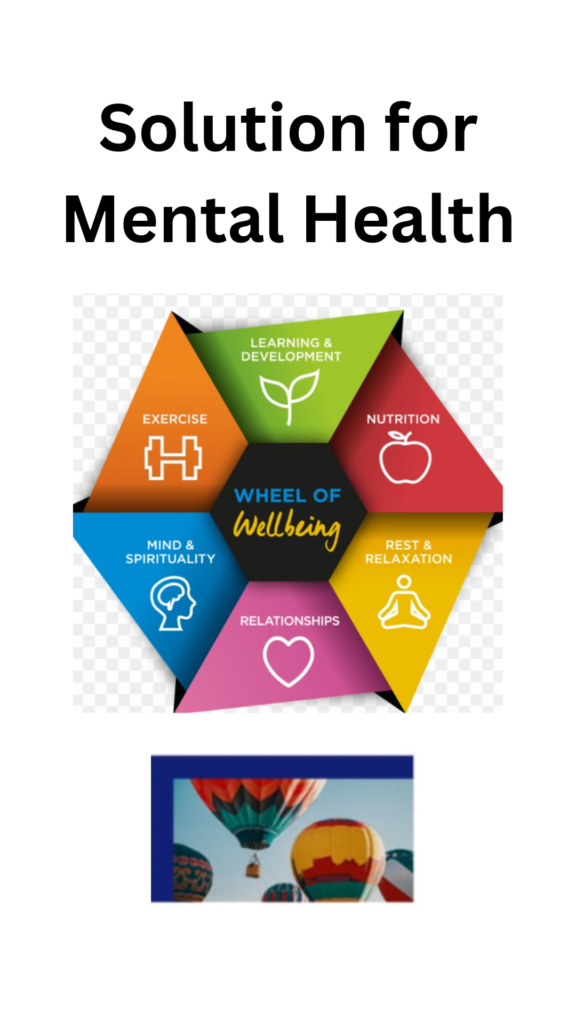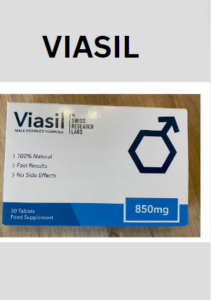Mental Health Awareness is the knowledge, appreciation, and acceptance of the significance of mental health. In order to increase understanding of various mental health challenges, it entails promoting open dialogue, lowering stigma, and creating a compassionate environment. We frequently forget to give our mental health the attention it deserves in our fast-paced, seemingly always-moving world. Being mindful of one’s mental health is not merely a catchphrase; it is essential to our general wellbeing. We will be discussing the importance of mental health awareness, typical problems, and workable solutions to promote a sound and balanced mind in this blog post which are as follow.
Mental health awareness, typical problems, and workable solutions
- Being Awareness of Mental Health
Understanding what mental health entails is crucial before starting on the path to improved mental health. Our emotional, psychological, and social well-being are all referred to as mental health. It shapes our thoughts, feelings, and behaviors, affecting our capacity to manage stress, interact with others, and make decisions.
- The Shame Associated with Mental Illness
Mental health still carries a stigma, despite increased awareness. Many people put off asking for assistance out of fear of being judged or because of social misconceptions. It’s critical to remove these obstacles and establish a setting where talking about mental health is as commonplace as talking about physical health.
- Typical Mental Health Issues are:

i. Disorders of Anxiety
Anxiety is a common mental health problem that affects millions of people globally. Comprehending the distinct categories of anxiety disorders, including social anxiety and generalized anxiety disorder (GAD), can enable people to identify and manage these difficulties.
ii. Depression
Another common disorder that can affect all facets of life is depression. Examining the symptoms, indicators, and possible causes will help with early detection and intervention.
iii. Handling Stress
Stressors in daily life are unavoidable, but prolonged stress can seriously impair mental health. Extended periods of time spent under stress can exacerbate mental health issues like depression, anxiety, and anxiety. It emphasizes how crucial it is to implement efficient stress management techniques in order to lessen the negative impacts that ongoing stress has on general wellbeing.
vi. Manic Depressive Disorder
Bipolar disorder is a complex mental health condition characterized by extreme mood swings between manic and depressive episodes. People managing this illness must understand that these mood swings are cyclical. Comprehending these oscillations is essential for putting into practice workable coping strategies, which enable individuals with bipolar disorder to more effectively handle their symptoms and enjoy more stable and satisfying lives.
v. OCD, or obsessive compulsive disorder
Repetitive behaviors and persistent, intrusive thoughts are characteristics of OCD. Our goal is to offer insights into managing and lessening the effects of this frequently misunderstood disorder by shedding light on the mechanisms underlying OCD and investigating evidence-based therapeutic approaches.
vi. Major Depressive Disorder (PTSD)
Trauma can have a long-lasting negative impact on mental health and frequently result in PTSD, or post-traumatic stress disorder. Following a traumatic event, people may have lingering symptoms such as intrusive memories, flashbacks, and increased anxiety. Environmental or emotional triggers have the power to elicit strong emotional reactions, which exacerbates the psychological effects of trauma. Symptoms include hypervigilance, emotional numbness, and sleep disturbances. It is critical to identify and comprehend these symptoms in order to facilitate early intervention and holistic healing, underscoring the significance of providing all-encompassing support to individuals dealing with the long-lasting effects of trauma.
vii. Problems with Eating
Eating disorders and other eating problems, as well as an unhealthy relationship with food, can have a substantial negative effect on mental health. Unhealthy eating habits can cause anxiety, sadness, or feelings of embarrassment and guilt. Negative self-perception and low self-esteem can be exacerbated by body image problems. Furthermore, poor eating habits that lead to nutritional imbalances can impair brain function and exacerbate mood disorders. The relationship between eating habits and mental health emphasizes how critical it is to address both problems comprehensively in order to support overall wellbeing.
viii. Addiction and Substance Abuse
Addiction and substance misuse frequently coexist with mental health issues. We’ll explore the interconnectedness of these problems and the significance of dual-diagnosis treatment, emphasizing the demand for all-encompassing care that treats addiction and mental health concurrently.
Recognizing the wide range of mental health issues must be covered in order to have an informed and inclusive conversation. We can promote empathy, lessen stigma, and work toward a society that accepts the complexity of mental health with compassion and understanding by recognizing the subtleties of these conditions.
Creating a Helpful Environment Involves:
a. The Communicative Power
An essential component of mental health is honest and open communication. Talking about feelings and emotions with others fosters a supportive environment and lessens the feeling of loneliness that frequently accompanies mental health issues.
b. The Significance of Connections
Developing healthy relationships has a big impact on mental health. A network of sympathetic people, be they family, friends, or a support group, can be consoling and uplifting.
The following are lifestyle options for mental health:

i. Fixing Consumption Patterns
Nutrition is essential for mental wellness. Maintaining a daily diet that is well-balanced not only helps to maintain overall health but also restores the body by providing it with nutrients that have been lost over time.
ii. Consistent Physical Exercise
Exercise has a significant positive influence on mental health in addition to its physical health benefits. A healthier mind can be achieved this by finding an activity that fits personal preferences, from yoga to short daily walks.
iii. Good Sleep: It is impossible to exaggerate the significant influence that proper sleep has on mental health. Have a good relationship between emotional health and, having good sleep will help . A comprehensive approach to mental well-being incorporates useful advice for creating a regular sleep schedule, treating insomnia, and realizing the importance of sleep hygiene.
iv. Utilizing Technology Mindfully
The way we engage with technology in the digital age has a big impact on mental wellness. To maintain a healthy relationship with technology and improve mental health in general, control technology usage, establish boundaries, monitor screen time, and encourage a balance between online and offline interactions.
v. Artistic Expression
It has been demonstrated that creative endeavors have therapeutic advantages for mental health. Incorporating creative outlets into daily life, whether through writing, music, art, or other forms of self-expression, can be a highly effective way to relieve stress and express emotions.
vi. Outdoor Recreation and Nature
Rejuvenating mental health is a result of spending time in nature. This section examines the mental health advantages of being outside, advocating pursuits like hiking, gardening, or just taking a leisurely stroll in the park as practical methods of improving mental wellness.
People can make lifestyle choices that support their mental health by stressing the value of getting enough sleep, encouraging mindful technology use, supporting creative outlets, and highlighting the therapeutic advantages of nature and outdoor activities. These preemptive actions foster resilience in the face of life’s obstacles and contribute to a balanced and meaningful existence.
Getting Expert Assistance in the following ways:
- You need Counseling:
One useful tool for treating mental health issues is therapy. Many forms of therapy are also available, along with the significance of getting professional assistance without passing judgment on you.
- Seek Medical advice/ Drugs and Mental Wellness from a Medical Professional:
Medication might be required in specific circumstances as part of mental health treatment, that is why it is needed to seek a medical professional, which will serve as a way of you obtaining drugs prescription if needed at that point in time.
In summary:
Raising awareness of mental health issues is a journey rather than a destination. Through gaining knowledge about mental health, identifying shared difficulties, and putting workable solutions into practice, we can foster a community that places a high value on the health of its constituents. When this steps are followed towards eradicating mental illness, creating welcoming environments, and adopting a comprehensive strategy for mental health, your well-being will be fully restored to normal.





